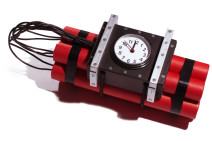List of Specific Industries
North American Industry Classification System (NAICS) codes for this industry
[ 238210 ] = Electrical contractors and other wiring installation contractors – Computer and network cable installation
[ 541512 ] = Computer systems design services – Local area network (LAN) computer systems integration design services
Industry Description
One challenge for voice recognition and speech synthesis is language translation. Again, it is not possible to convert from one language to another by simply translating word by word. Babel Fish and other online translators are well-known for their limitations. It is necessary to understand how thoughts are represented in each language, choosing the correct words to express properly the translated thought.
Remember a well-intentioned politician who wanted to express solidarity in his speech by saying “Ich bin ein Berliner!”? [ 26 June 1963 – West Berlin — http://www.youtube.com/watch?v=XjHcNhcahv4 ] He wanted to identify himself as a “citizen of Berlin”, but some believe he actually called himself “a jelly donut (like the ones made in Berlin)”. If he had left out the word “ein”, there would have been much less confusion. So it is with computer-based language translation. Translation is not as important as understanding usage and context of each language involved.
(6-18-2013)














What People are Saying.